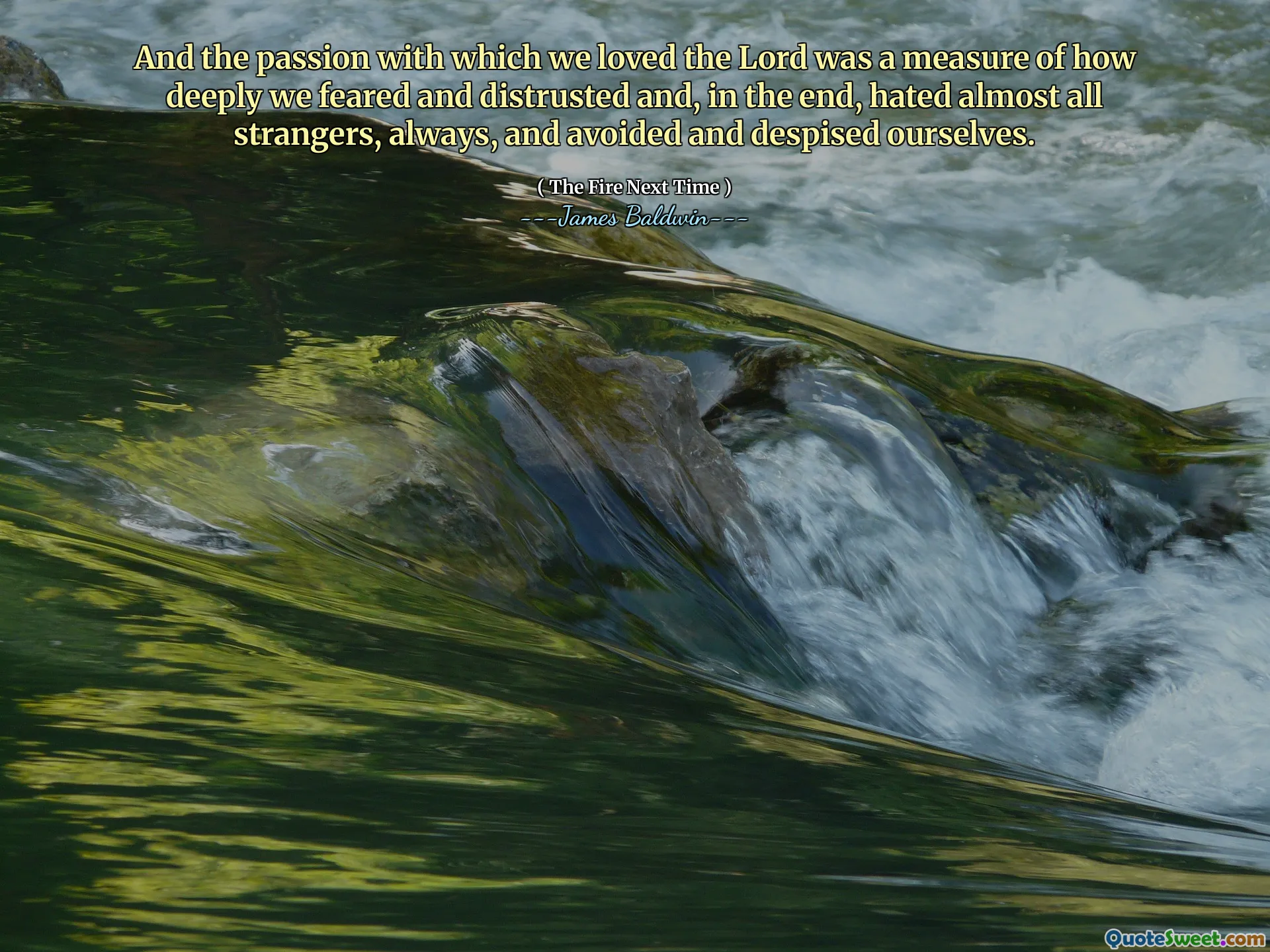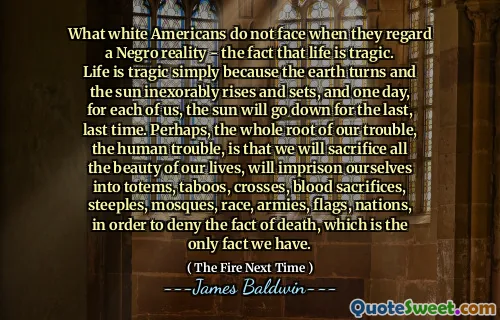
And the passion with which we loved the Lord was a measure of how deeply we feared and distrusted and, in the end, hated almost all strangers, always, and avoided and despised ourselves.
This quote explores the complex relationship between love, fear, distrust, and self-awareness. It suggests that the intensity of love directed toward a deity or higher power can serve as an indicator of underlying fears and insecurities. When love is rooted in fear—fear of the unknown, of judgment, or of one's own flaws—it often becomes intertwined with suspicion and contempt toward others who are different or unfamiliar. The notion that love can mask or be a reflection of distrust reveals a deeper, perhaps darker, human tendency: to seek reassurance and identity through external devotion while neglecting compassion and understanding of others.
Furthermore, the phrase implies that such passionate devotion may paradoxically lead to self-hatred and social hostility. When love is driven by fear and distrust, it may foster a worldview where 'the other' is seen as a threat rather than an opportunity for growth and empathy. Over time, this attitude can spiral into self-contempt, as individuals internalize these tensions, creating a cycle of alienation and disconnection.
This reflection resonates deeply with societal issues around identity, prejudice, and spirituality. It challenges us to question whether genuine love and faith can truly flourish in an environment fueled by fear, or if they instead become tools of division. Recognizing this dynamic is essential for fostering authentic compassion and building bridges between people, transcending the barriers of distrust and self-loathing. Ultimately, the quote warns us that love should not be a mask for distrust, but a foundation for understanding and unity, breaking free from the cycle of fear and hatred.








